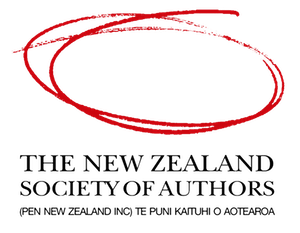

<p><img class=" alignright size-full wp-image-1771" src="http://schoolnewsnz.fastrackdev.com/wp-content/uploads/2015/09/NZSA_logo.png" alt="NZSA logo" style="margin: 5px; float: right;" width="300" height="233" />The decision by the president of the Film and Literature Board of Review, Dr Don Mathieson, QC, to issue an Interim Restriction Order banning the sale or distribution of Auckland author Ted Dawe&#8217;s award-winning novel for teenagers, Into the River, is exceedingly troubling, says New Zealand Society of Authors president, Kyle Mewburn.</p>
<p> <!--more--> </p>
<p>&#8220;After arguing a minority, losing case, the Review Board president appears to have made a unilateral decision to slap a total ban on the book,&#8221; Mr Mewburn said.</p>
<p>&#8220;The decision seems to be entirely based on personal morals rather than any professional advice or objective judgment. If so, it&#8217;s a seriously troubling development, which has less to do with &#8216;protecting young people&#8217;, and more to do with pushing a particular worldview.</p>
<p>&#8220;The book has been comprehensively considered and discussed by professionals including librarians and teachers; people in daily contact with the book&#8217;s target readership. The overwhelming majority view of these professionals was that Into the River presents a brutal and challenging reality which is, sadly, faced by many teenagers, making it an important and timely book.</p>
<p>&#8220;Dr Mathieson&#8217;s decision is also at odds with our National Annual Awards for outstanding Children&#8217;s and Young Adult Literature, the 2013 judges having unanimously identified Dawe&#8217;s book as the year&#8217;s overall winner. The furore at the time appeared to be largely generated by people who objected to the book&#8217;s content on moral or religious grounds &#8211; often without reading it.</p>
<p>&#8220;Initial attempts to censor this book were defeated, in large part by the unwavering support and efforts of librarians and other professionals in the field. It is a concern to see the saga continue against their considered advice.</p>
<p>&#8220;One of NZSA&#8217;s functions is to guard against any erosion of our right to freedom of opinion and freedom of expression, which this decision comes perilously close to doing. As writers we strongly object to the curtailing of readers&#8217; rights to access literature on the basis that it is deemed to offend a specific moral viewpoint.</p>
<p>&#8220;Not since 1961 when James Courage&#8217;s novel A Way of Love was banned have we seen this scale of assault on New Zealand literature.&#8221;</p>
<p> ;</p>

EXCLUSIVE: Teachers used to be paid two to three times more than minimum wage workers,…
After an “overwhelming” vote to reject the latest Government offer, secondary school teachers will begin…
Second-language learning should be compulsory, says a new report from a forum bringing together academics,…
A new entitlement aimed to improve access to learning support coordinators for schools with students…
Educators have raised questions about the Ministry of Education’s new secondary school subjects, set to…
Professional learning and development (PLD) for teachers needs to be higher impact for teachers and…
This website uses cookies.